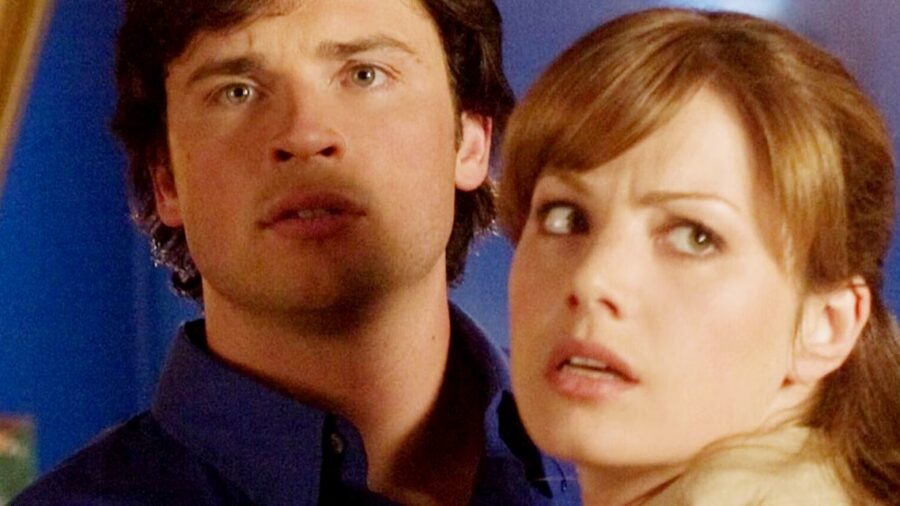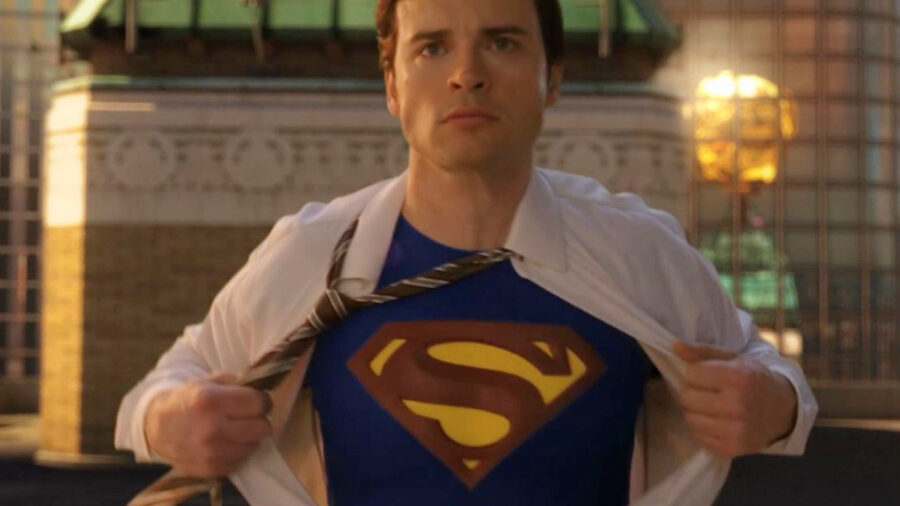Smallville Creators Grateful They’re Not Making The Show Now
The showrunners of Smallville are grateful that they made the show when comic book properties were not so rigidly run by committee.

Smallville showrunners Miles Millar and Al Gough opened up to Hollywood Reporter about their hit Netflix series Wednesday and how the show reminds them of their time on Smallville came up. The pair talked about the similarities and differences between the two shows and the periods they’re made in. Both creators said the timing of the show’s release, just after 9/11, contributed to its success.
Working with a significant property like Superman was different when Smallville was produced. These properties can be tightly controlled, but in the early 2000s, Millar and Gough had creative freedom within The WB, with Gough adding: “I feel like we were very, very fortunate to do the show when we did it because we got to make the show we wanted to make, and frankly, there was no committee sitting over us telling us what we could or couldn’t do.” Millar added how much the show could take liberties with the story by changing details or adding non-canon details.
Not only was Smallville made at the perfect moment for American audiences, but it was also produced during an exciting time for network television. The creators mention receiving letters from military fans telling them that the weekly episodes were a highlight of their routine. Unfortunately, in a world where most media is intended for streaming and often designed to be binge-watched, this connection between a timeslot and the fans of a show has been lost.

Audiences accepted Smallville without questioning the deviations from the comics. Its warm reception was partly because post-9/11 audiences were hungry for a slice of Americana, and Smallville serves precisely that. Fans took to the series after its release, but there were some reservations before the first episode aired.
What makes Smallville so unique is the intimate introduction it gives fans to Clark Kent (Tom Welling) in his youth, but the premise’s genius wasn’t universally apparent. Many fans and critics alike balked at the idea of Superman as a teenager. Show creators feared a superhero wearing sneakers and attending public high school wouldn’t gain the audience’s respect.
Fortunately, Clark Kent’s wholesome heart and loyalty won audiences over and made the show one of the most television series ever. Gough and Millar note distinct similarities between the main character of Smallville and Wednesday Addams (Jenna Ortega)
Both characters are close with and dedicated to their families but struggle to find a well-defined role in the larger world. Wednesday and Clark are finding themselves and defining who they are in coming-of-age stories. The difference is where Clark is inherently good, Wednesday’s morality is flexible.
Smallville touched on every theme and genre over its 10 years on the air. One consistent theme was that Clark would always do the right thing. Wednesday Addams isn’t as boxed in, giving the writers more freedom with where their characters can go.
Shooting the spooky Netflix series Wednesday is a much different experience than creating Smallville. With more than 20 years between the two series, the cultural and technological differences alone guarantee that creating the shows are two very different experiences. Smallville could never be made the same way, nor would it be received the same way, something its creators are keenly aware of.












